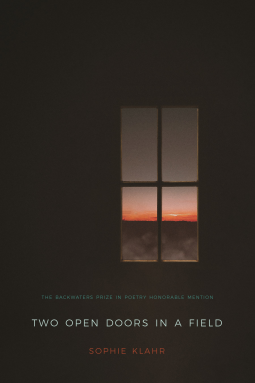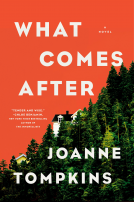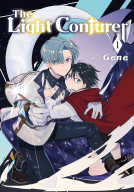
Two Open Doors in a Field
by Sophie Klahr
This title was previously available on NetGalley and is now archived.
Send NetGalley books directly to your Kindle or Kindle app
1
To read on a Kindle or Kindle app, please add kindle@netgalley.com as an approved email address to receive files in your Amazon account. Click here for step-by-step instructions.
2
Also find your Kindle email address within your Amazon account, and enter it here.
Pub Date Mar 01 2023 | Archive Date Feb 28 2023
University of Nebraska Press | The Backwaters Press
Talking about this book? Use #TwoOpenDoorsinaField #NetGalley. More hashtag tips!
Description
The poems of Two Open Doors in a Field are constructed through deliberate limitations, restlessly exploring place, desire, and spirituality. A profusion of sonnets rises from a single circumstance: Sophie Klahr’s experience of driving thousands of miles alone while listening to the radio, where unexpected landscapes make listening to the unexpected more acute. Accompanied by the radio, Klahr’s experience of land is transformed by listening, and conversely, the body of the radio is sometimes lost to the body of the land. The love story at the core of this work, Klahr’s bond with Nebraska, becomes the engine of this travelogue. However far the poems range beyond Nebraska, they are tethered to an environment of work and creation, a place of dirt beneath the nails where one can see every star and feel, acutely, the complexity of connection.
Advance Praise
“Sophie Klahr’s spare twenty-first-century sonnets track a drift toward and away from attachment across a beautifully drawn, often desolate landscape. It’s a national myth, the lonesome rider searching the vast open spaces for shelter and refuge. But now the drifter is a woman as strong as she is vulnerable, and the wide desert skies, like the land beneath them, are compromised and endangered. Two Open Doors in a Field is exhilarating and restless, as scrupulous in its attention to our little roads and highways as it is to our longings.”—Mark Doty
“Sophie Klahr’s poems are perpetual motion machines, stunning in all the ways they blaze through landscapes of adoration and epiphany and ache. From intimate sonnets to panoramic lyric sequences, from Jurassic seas to the spectral glow of motel pools and ‘pulses of song’ beneath a ‘dark bowl of stars,’ this synaptic second collection carries us across ‘deep time’ and its thresholds.”—R. A. Villanueva
“A road map for those of us needing to connect to the world around us, particularly in an era when we’ve felt so isolated from human connection. Like the Virgil of this journey, Terence, Klahr, too, finds nothing human foreign to her. . . . The road is long, the night wears on, but we have ‘a place to sleep in her hands.’”—A. Van Jordan
Available Editions
| EDITION | Other Format |
| ISBN | 9781496232373 |
| PRICE | $17.95 (USD) |
| PAGES | 74 |
Average rating from 13 members
Featured Reviews
An introspective, cathartic book of poetry that challenges the reader to examine their life in the minutia. I loved this.
 Sura S, Reviewer
Sura S, Reviewer
3.5/5
I enjoyed reading this, and I loved the format of the different trips and radio stations. I couldn’t help but be reminded of Alice isn’t dead. However, aside from a few of the poems, I didn’t really feel anything one way or another about the poems.
 Reviewer 1024490
Reviewer 1024490
This forthcoming poetry collection traverses American roads, in some ways revising Kerouac from a queer woman’s vantage point. In sonnets that are so fluid that I often forgot they were sonnets, Klahr thinks about solitude and relationships on open, interior roads. She listens to the radio, contemplates separation, masculinity and her father, Christianity and whiteness. There’s a special love here for Nebraska, which she returns to again and again. The most common action verb was “driving,” but the most common activity, really, was thinking. This is a lovely entry to the canon of American road literature.
Thank You Netgalley and the publishers for sending me and allowing me to read this E-ARC.
This was fine but I've definitely read better.
 Reviewer 1008421
Reviewer 1008421
So many great lines:
we must be // quiet to hear the universe
memory rips me / from the land
the suicide's blink
In Russian, there are two words for the verb / Die. One for animals, one for people.
The motel pool still and blue as a pill
In each scar, a story-- / pale comma of a slipped saw
There is clockwork to a fire
Where the walls seem to luff in the wind
On TV, people are playing a game, / clapping when the holes in the world are named
Nebraska talked in its sleep









